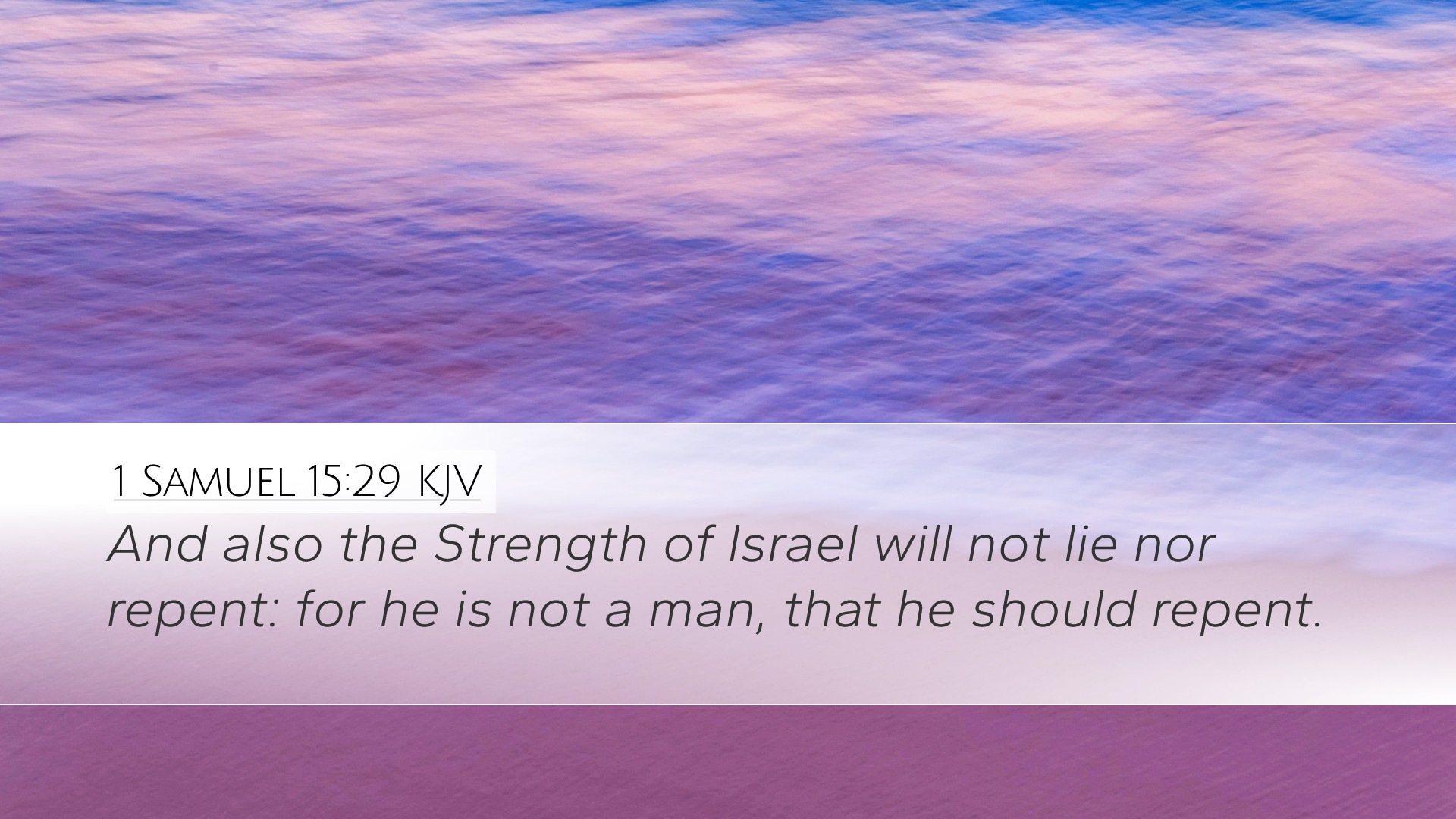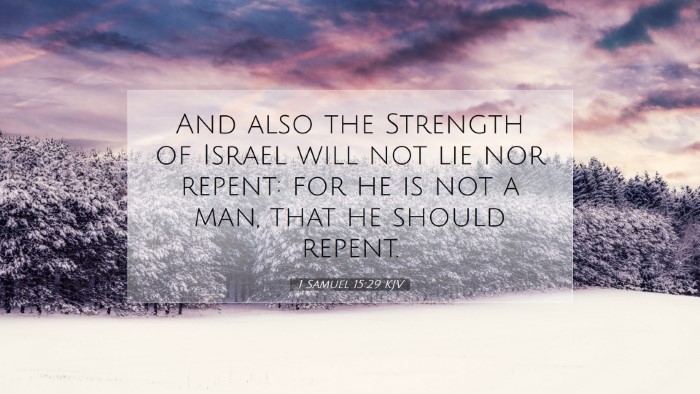Commentary on 1 Samuel 15:29
1 Samuel 15:29 states, "And also the Strength of Israel will not lie nor repent: for he is not a man, that he should repent." This verse signifies a profound truth about God's unchanging nature and His divine purpose.
Introduction
The context surrounding this scripture is pivotal in understanding its depth. In 1 Samuel 15, we witness God’s command to Saul regarding the Amalekites—an instruction that Saul failed to fully obey. This act of disobedience not only resulted in God rejecting Saul as king but also revealed the stark contrast between divine expectations and human fallibility.
God’s Nature
The Unchanging Strength of Israel: The phrase "the Strength of Israel" affirms God's might and permanence. As noted by Matthew Henry, this term encapsulates the essence of God's support and fidelity to His people, serving as a reminder that even in disobedience, God remains a steadfast protector and leader.
Immutability of God: The declaration that "He will not lie nor repent" emphasizes God's immutable character. Albert Barnes underscores that God’s promises and purposes are not swayed by human actions. Unlike humanity, who may change convictions or intentions, God’s will is absolute and sovereign.
The Significance of Non-Repentance
Understanding divine non-repentance is crucial. Adam Clarke elaborates on this idea by explaining that God's “repentance” refers not to regret or changing His mind, as humans might do, but rather an adherence to His plan and purpose. God's 'repentance' could refer to His adjustment of methods in dealing with humanity rather than a change in His decrees.
Theological Implications
- God's Eternal Counsel: The implications of God's nature as one who does not repent extend to His eternal counsel and wisdom. Unlike human decision-making, based often on emotional or situational responses, God's decisions emanate from His infinite wisdom.
- Confidence in God's Promises: This assurance in God's character offers believers confidence in His promises. When God pledges support or deliverance, it is unwavering. Henry points out that this unchangeable quality of God assures His people of His commitment to them.
Comparative Analysis
When comparing God's response to Saul's actions, we see a contrast between the divine and the human approach to leadership and accountability. Saul’s disobedience led to his rejection, while God remained steadfast in His plan for Israel. This sheds light on the gravity of Saul's failure; he not only acted against God's command but did so knowing the consistent nature of the Divine.
Historical Context
- The Role of Kingship: In the Old Testament context, a king was expected to lead with righteousness and fidelity to God. Saul's failure reflects not only a personal deficiency but also an institutional crisis within Israel’s leadership.
- The Consequences of Disobedience: Saul's fate is a cautionary tale for leaders, illustrating that a departure from God’s commands can have dire consequences not just for the individual but for the whole community.
Practical Applications
For pastors and church leaders today, 1 Samuel 15:29 serves as a reminder of the importance of integrity and faithfulness to God's commands.
- Leadership Accountability: Leaders should be aware of their accountability to God’s instructions. Disobedience can lead to a loss of favor and influence.
- Trust in God’s Sovereignty: Believers are encouraged to trust in God’s unchanging nature, especially during uncertain times when human systems may fail or falter.
- Commitment to God’s Word: It is essential for leaders and believers alike to study and adhere strictly to Scripture, ensuring that their actions align with God’s will.
Conclusion
In conclusion, 1 Samuel 15:29 reveals profound insights into the character of God—His strength, immutability, and commitment to His people. As we reflect on this verse, let us consider how it challenges and inspires us in our walk with God. We are reminded that while human kings may fail, our Divine King is steadfast and true, calling us to a higher standard of obedience and faithfulness.
May this understanding guide pastoral leadership and inspire faithful living among all believers.


